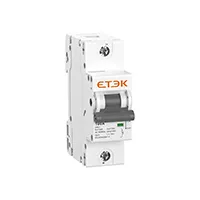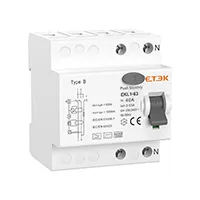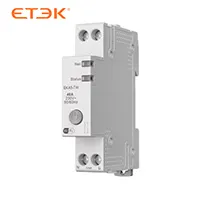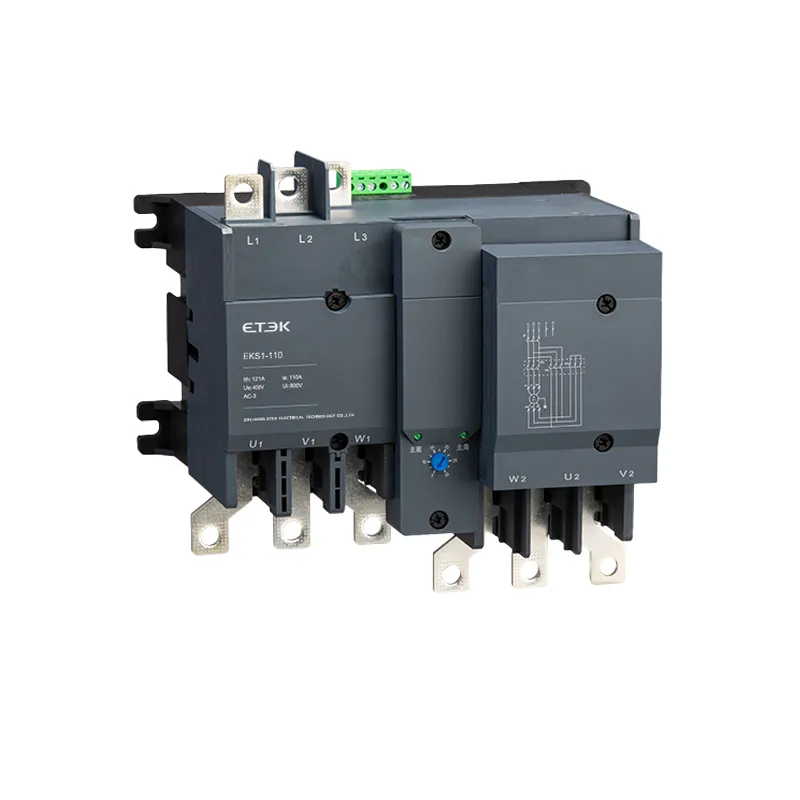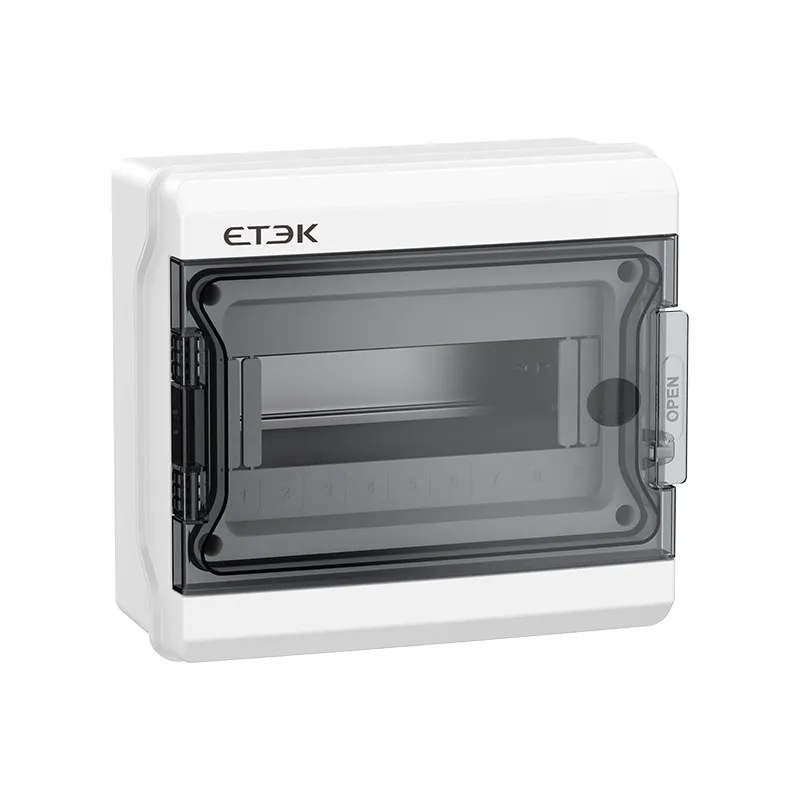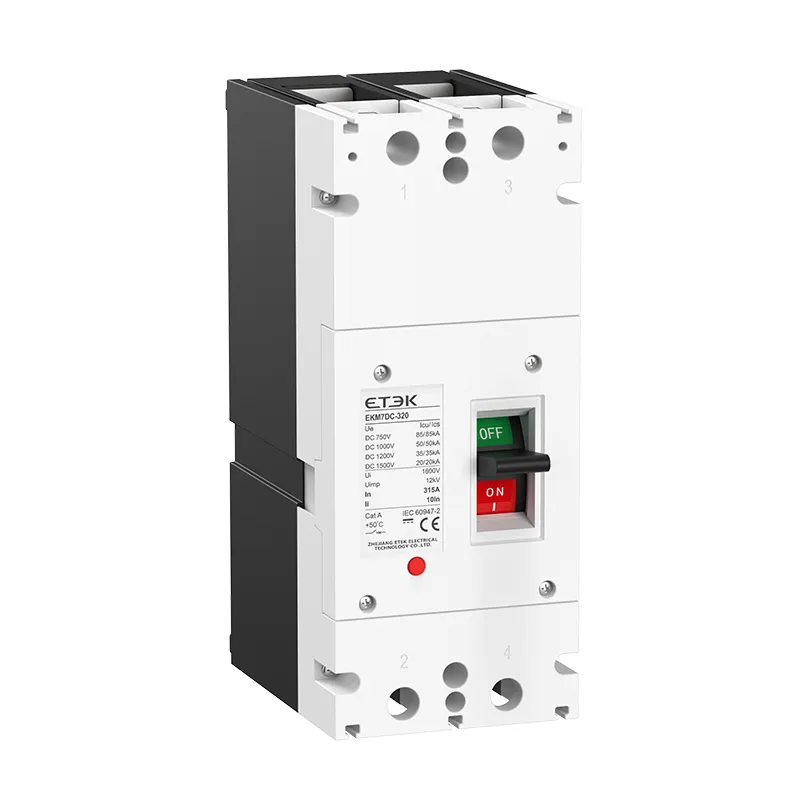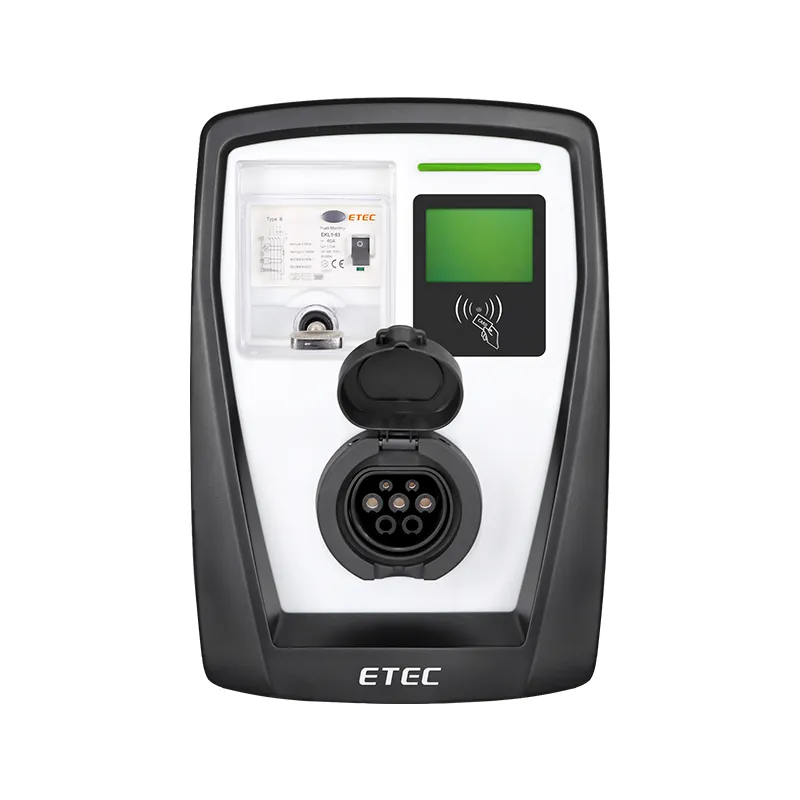Correct selection of RCD types to safeguard the safety of different applications
In today's electrical applications, the presence of residual DC currents poses a challenge to the safe operation of electrical systems. Although the seemingly insignificant 6mA DC current does not actually pose a great danger directly, it has the ‘magic’ power to cause some RCDs to fail, seriously affecting their normal operation. This is just like a ‘little devil’ hidden deep in the electrical system, which, if not taken seriously and handled properly, can cause a series of safety problems at any time, threatening the safety of personnel and equipment.
Especially in specific scenarios such as electric vehicle charging (EV Charger) and photovoltaic (PV) power generation systems, residual DC current occurs more frequently, which makes the correct selection of RCDs critical and challenging. In these scenarios, a blind RCD connection should never be allowed, otherwise the consequences will be disastrous.
I. Different Types of Residual Current Circuit Breakers
Residual current action protector (RCD), which is also commonly known as residual current circuit breaker, has various types to meet the needs of different electrical application scenarios. They mainly include the following common types:
* Type A RCD: e.g. EKL1 - 63, EKL6 - 100, EKL5 - 63, etc. They are excellent at protecting against AC residual currents, but are also effective against pulsating DC currents superimposed on < 6mA smooth DC currents.
* Type B RCDs: like EKL1 - 63B, EKL6 - 100B, EKL5 - 63B etc.. Their distinctive feature is that they are able to detect DC residual currents and provide reliable DC leakage protection for electrical systems by tripping quickly when the smooth DC residual current reaches between 0.5 and 2 times the rated residual current (IΔn).
* RCDs of the EV type: e.g. EKL6 - 63EV, are a special type designed for EV mode 3 charging stations, with a very specific function, and are used exclusively for on-line charging of electric vehicles, but not for other applications.
Characteristics and application restrictions of different types of RCDs
1.The characteristics and limitations of type A RCDs
Type A RCD has its own unique performance advantages. It can cope well with AC residual currents and provide reliable leakage protection for AC circuits. At the same time, it can also provide effective protection against pulsating DC currents superimposed on < 6mA smooth DC currents, ensuring the safe operation of this part of the circuit.
However, Type A RCDs are not perfect and have one obvious limitation - they cannot detect smooth DC currents. This means that, once the smooth DC current component exceeds the risk of 6mA, the A-type RCD will not be able to provide comprehensive protection for the electrical system, then the electrical system is exposed to danger, safety hazards may break out at any time, bringing potential threats to the stable operation of the entire system.
2.Advantages and Standards of Type B RCDs
B-type RCDs show excellent performance in dealing with DC residual currents. Its product standard has strict regulations, which is also the key to its ability to effectively guarantee electrical safety. When the smooth DC residual current is between 0.5 and 2 times the rated residual current (IΔn), the B-type RCD must quickly trip, cutting off the current very quickly and preventing potential hazards from expanding further.
This precise and reliable protection makes B-type RCDs a favourite in scenarios where safety is of paramount importance. Whether in complex industrial environments or in commercial premises with stringent requirements for electrical safety, the B-type RCDs are able to build a strong safety defence for electrical systems with their excellent DC residual current detection and tripping functions, ensuring the safety of people and equipment.
3.Exclusive applications for EV RCDs
In the field of electric vehicle charging, EV type RCD has been developed for use as the ‘exclusive guardian’ of electric vehicle Mode 3 charging stations. It is designed with a very clear purpose, optimised for EV charging scenarios, and can only be used to provide accurate protection when charging EVs online, and can never be used in any other application scenarios.
This is due to the unique functionality of the EV RCD. It incorporates specific additional functions for the precise detection of residual currents of type A (AC and pulsating residual currents rated at 50 Hz) as well as smooth DC residual currents that switch off at a maximum of 6 mA. This special design for the charging needs of electric vehicles enables the EV RCD to provide tailor-made security for the charging process of electric vehicles, ensuring that the charging process is carried out in a safe and stable manner.
It should be emphasised that although B-type RCDs can also play a role in EV charging applications, EV-type RCDs cannot be replaced by B-type RCDs due to their unique functional design and targeted optimisation. They play their own roles in the electric vehicle charging system, and jointly escort the charging safety of electric vehicles to ensure that electric vehicle users can charge their vehicles in a safe environment, providing a solid safety guarantee for the development of the electric vehicle industry.
The importance of choosing the right RCD and ETEK product recommendation
In actual electrical projects, choosing the right RCD is never easy, and it requires us to fully consider the specific characteristics and practical needs of the application scenario. If you are working on a project with residual DC current, such as electric vehicle charging, photovoltaic power generation, etc., ETEK's wide range of RCDs is the ideal choice for you.
As a well-known brand in the industry,ETEK has always been committed to providing customers with high-quality, high-performance electrical products. With their advanced technical design and rigorous quality testing and verification, ETEK's RCDs are able to operate stably in a variety of complex electrical environments, providing accurate and reliable protection for your electrical system.
In conclusion
Whether it's an A, B or EV RCD, ETEK's RCDs are designed to meet the needs of different applications with superior quality and professional performance. Choosing ETEK's RCD products is like hiring a professional ‘security guard’ for your electrical system, always guarding the safety of the electrical system, so that you do not have to worry. Let's pay attention to the choice of RCD together, with professional attitude and high quality products, to build a solid defence for electrical safety, to ensure the stable operation of the electrical system, to create a safe and reliable electrical environment for our life and work.



.webp)

